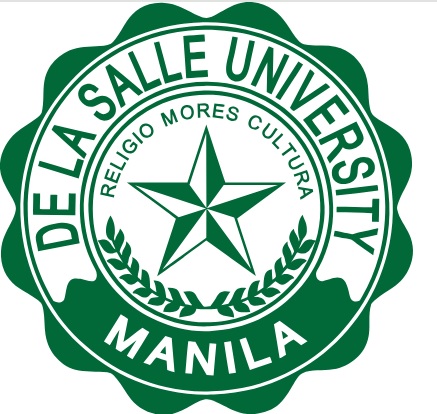De La Salle University Manila

Strengths
De La Salle University (DLSU) is a Catholic school founded in 1911, renowned for academic excellence, prolific research and commitment to the local community.
Located in the heart of Manila, DLSU is the destination for international students seeking quality education in a vibrant city, where culture and diversity are equally present. La Salle is the only private university in the Philippines to be a founding member of the ASEAN University Network (AUN), a prestigious university network..
Major, Academics
You can choose courses from all the bachelor’s degrees offered by the Business College
https://www.dlsu.edu.ph/colleges/rvrcob/undergraduate-degree-programs/
You’ll need to take at least 5 courses or 15 units at La Salle to earn 30 ECTS per semester.
Campus
The main campus, located on Taft Avenue in Manila, comprises 19 buildings (nine classrooms and ten other buildings for administrative functions) set in 5.45 ha (13.5 acres) of land. The campus, not far from the sea, is located next to the Vito Cruz station on metro line 1.
In order to create a multicultural and diverse learning environment, and to offer students an enjoyable and meaningful exchange experience, the university has developed a training program for all international students, entitled “InSPIRE Lasallien”. It includes a series of additional activities designed primarily to meet the adaptation needs of international students. Activities are organized by the Centre International (CI) in partnership with IC Buddies (a group of student volunteers). Activities include welcome and orientation, basic Filipino lessons, cultural visits and immersions, discussions or forums, as well as closing and farewell activities.
De La Salle University is surrounded by numerous restaurants to suit all budgets and tastes, showing just how much Filipinos love cultural diversity when it comes to their choice of food.
The university clinic has three full-time physicians and other medical staff. It provides the Lasallian community with first-aid services, consultations and medicines for common ailments.
The university also has a fitness center, located in the Enrique M. Razon Sports Center. Teachers and students can benefit from the services offered by the center.
Several other medical and health centers are available close to the campus.
The university is a secure learning environment with state-of-the-art facilities, as well as cultural, spiritual and sporting venues to support the development of community members.
All classrooms have Internet access. The laboratories are equipped with state-of-the-art facilities. The university libraries have a vast collection of books, magazines and other references.
To discover
The capital of the Philippines, Manila is a surprising city in many ways, and one that you need to take the time to visit to fully appreciate. It has to be said that what is now one of Asia’s most important megacities is full of contradictions. We move from immense shantytowns to ultra-modern shopping malls, from noisy slums to futuristic skyscrapers…
This historic walled city was once the heart of the Spanish and American governments during their colonial reign in the Philippines. After being reduced to rubble during the Second World War, reconstruction began in the 1950s. You can simply walk through the Intramuros district or hop on a kalesa (horse-drawn carriage) to discover Manila’s oldest quarter.
Also worth a visit are Rizal Park and the monument to the national hero, the old Catholic churches and the Ayala Museum.
Manila attracted many foreign merchants even before the Spanish conquistadors took the city and later granted an area, called Binondo, to Chinese traders. Here you’ll find the world’s oldest Chinatown and a range of restaurants serving appetizing, affordable food.
Also visit the Makati business district for shopping and to see the contrast with the rest of the city, take a jeepney and join in the karaoke.
Good to know
Life in Manila is much less expensive than in France.
It is estimated that a student should plan to spend 18,000 Philippine pesos or 300€ per month for basic expenses, including accommodation, transport and food.
Some examples of costs :
Accommodation (shared or in a student dormitory) approx. 100€/month
Meals between €2 and €4
Subway ticket €20 cent
Internet connection €15/month
Cinema 2€
You can also try out the tricycle experience: these are improvised motorcycles with a side carriage for two to four passengers. Tricycles are available at certain locations in metropolitan Manila. Their itineraries are limited to a specific city or area.
What's going on ?
https://onlinenewspapers.com/philippines.shtml
https://www.world-newspapers.com/countries/asia/philippines
This information is provided as a guide.
Please visit the partner university’s website to have exact updated information.
Eligibility
Score required TOEFL: 550
ICD PGE
Documents required
Resume (in English)
Transcript of records
ID Document
Cover letter (in English)
Additional documents will be requested according to the destination
Planning
The academic year is divided into 3 terms. You can choose the first or the second term.
AUTUMN
Orientation: few days before lectures start
Lectures start : end of August
End of lectures and exams: mid-December
SPRING
Orientation: few days before lectures start
Début des cours : janvier
End of courses and exams: end of April
more information: https://www.dlsu.edu.ph/offices/registrar/academic-calendar/
Procedures
Passport valid for six months after your return date.
Visa is required.
You will need to apply for a Special Study Permit (SSP). This residence permit is valid for 6 months, but can be extended.
Accommodation
A list of accommodation is available to help students find accommodation close to the university.
This list is provided by the DLSU Housing Committee, made up of representatives of the administration, faculty, students and parents.
more information:https://www.dlsu.edu.ph/offices/osa-reference/housing-facilities/ , https://www.dlsu.edu.ph/wp-content/uploads/2019/03/off-campus-residences.pdf

